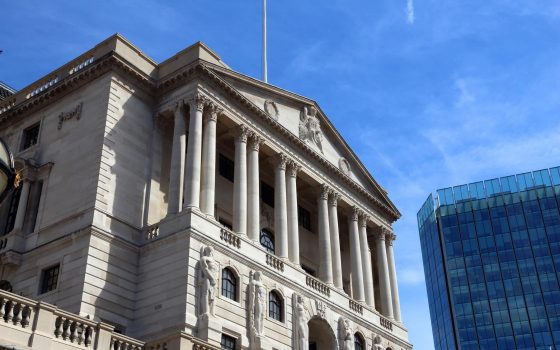FCA should go further and impose cap on overdraft fees to stop banks profiting from people’s misery
18 December 2018
Reacting to today’s news of the Financial Conduct Authority’s plans to reshape the way in which the overdraft market works for consumers, Andrew Pendleton, Director of Policy and Advocacy at the New Economics Foundation, and member of the End the Debt Trap Coalition, said:
“Eight million households are now caught in a consumer debt trap and paying out more than one quarter of their income in interest and charges. This is a crisis for those people and a big risk for the economy. Unsustainable private debt caused the last financial crisis.
“Banks are currently making more than £2.4bn from charges on overdrafts and around 30 per cent of this is from unarranged overdrafts, which indebted households often rely on to make ends meet or to repay other loans.
“The FCA are right to take action on overdrafts, but their proposed solution risks leaving the fate of households in the hands of banks. Under the FCA proposals, banks would not be allowed to charge more for unarranged overdrafts than for those that are pre-arranged. But that doesn’t stop them putting up all of their charges. And as people tend not to switch bank accounts, competition is unlikely to prevent this.
“Instead the FCA should extend the cap applied to payday lenders — and about to be applied to the Rent to Own sector — to overdrafts so that banks can’t just hike their charges and continue to make outrageous profits from people’s misfortune.”
NOTES
1. The FCA has set out plans to radically reshape the way in which the overdraft market works for consumers, which sits within wider business model reforms of the retail banking sector. The FCA’s proposals include: aligning prices of unarranged overdrafts with arranged overdrafts – stopping firms from charging higher prices when customers use an unarranged overdraft; simplifying overdraft pricing – arranged overdrafts should be priced using a single interest rate on each account; standardising the presentation of arranged overdraft prices to make them easier to compare and to position overdrafts as borrowing – requiring a representative annual percentage rate (APR) in certain advertising for arranged overdrafts; issuing new guidance to help firms comply with existing rules – refused payment fees should reasonably correspond to the costs of refusing payments
2. The End the Debt Trap campaign is a coalition of civil society organisations campaigning for a cap on all forms of consumer credit. It is composed of the New Economics Foundation, Centre for Responsible Credit, Jubilee Debt Campaign, Toynbee Hall, and Research for Action. For more on our work with the End the Debt Campaign coalition, click here: https://neweconomics.org/campaigns/end-the-debt-trap
Campaigns End the Debt Trap
Topics Banking & finance






